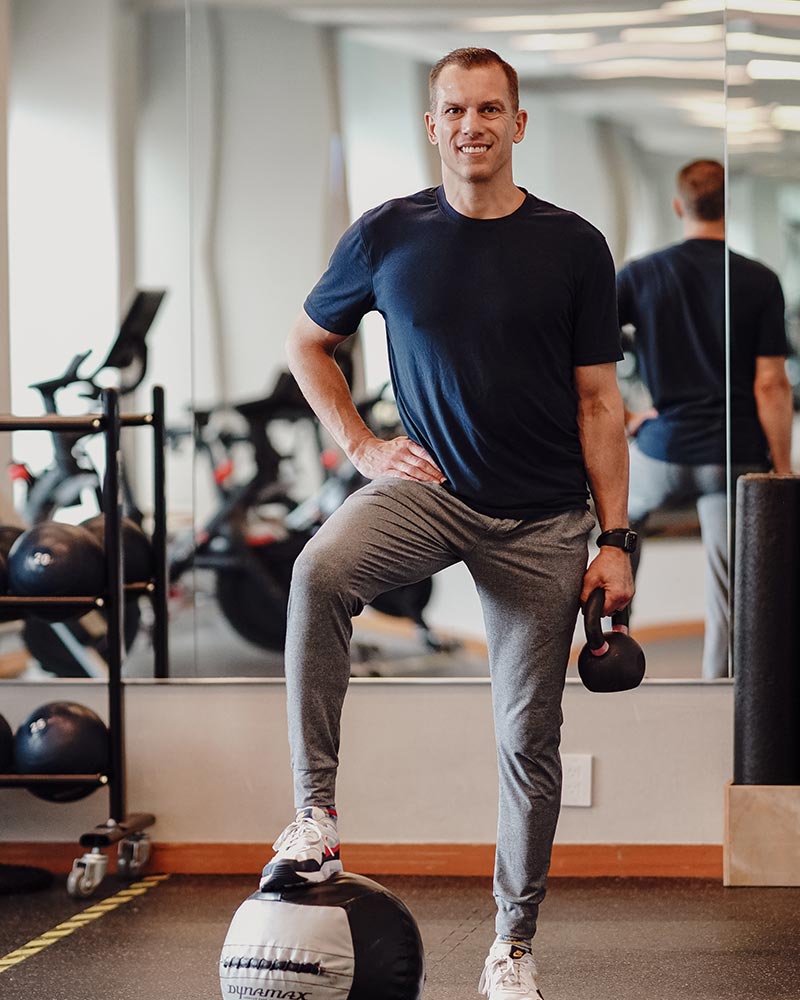
In Conversation With Jay Cardiello, Trainer To The Stars
Mind over matter
Hollywood’s go-to fitness and wellness trainer Jay Cardiello, known for working with stars like Jennifer Lopez, Kendall Jenner, and 50 Cent, has a deep love for helping others transform their lives, both physically and mentally. To help combat Australia’s rising obesity rates, Cardiello is teaming up with KAILO to launch a 12-week transformation programme focused on mindset reprogramming and sustainable change to support long-term weight loss.
Hi Jay! First off, tell me about yourself!
What inspired you to pursue a career in fitness and personal training?
It all started with my background as an athlete. I was a college track and field athlete, but after a severe back injury, my dreams of pursuing sports professionally came to an abrupt halt. During my recovery, I became fascinated with physical rehabilitation, strength training, and how the body can rebuild itself through movement – that period of recovery and learning inspired me to help others reach their full potential, regardless of their starting point.
How did you start working with celebrity clients like Kendall Jenner, 50 Cent, and Jennifer Lopez?
It happened quite organically. Early in my career, I focused on creating unique fitness strategies, combining movement, nutrition, and mindset in a way that resonated with people. Word of mouth became my best marketing tool, and one opportunity led to another. My first celebrity client was 50 Cent, whom I met through mutual connections. From there, my reputation for results, especially with high-pressure clients who needed discretion and efficiency, opened doors to working with others like Jennifer Lopez and Kendall Jenner. My ability to adapt and create tailored programs for each individual’s needs became a cornerstone of my work with these clients.

Jay Cardiello
How do you tailor workout plans for your clients?
It starts with listening. Every client has unique goals, challenges, and schedules. For high-profile clients, I tailor the program around their lifestyle – whether that means adjusting for long hours on set, frequent travel, or events. My approach combines functional fitness with the demands of their career so they’re getting effective, efficient, and sustainable workouts over time. I also focus heavily on mobility and injury prevention because these clients can’t afford downtime. It’s about balancing performance, aesthetics, and long-term health.
What are your top three tips for weight loss that people may not expect?
1. Focus on sleep. A good night’s rest is essential for weight loss, as it regulates hormones and metabolism.
2. Don’t restrict yourself too much. Over-restriction leads to unsustainable results and can trigger bingeing. It’s about moderation, not deprivation.
3. Move throughout the day. It’s not just about workouts. Walking, stretching, and staying active outside the gym can burn calories and boost your metabolism.
What advice do you have for anyone feeling unmotivated in their weight loss journey?
You can start small and give yourself grace. You don’t have to overhaul your life in one day. Focus on one healthy habit at a time and build momentum from there. And remember, it’s okay to have setbacks – it’s part of the process. Celebrate small wins, and keep your long-term vision in mind. Surround yourself with support, whether it’s a friend, a coach, or an accountability group.
What role do nutrition and exercise play in achieving sustainable weight loss?
They’re both crucial, but sustainable weight loss is about finding balance. Nutrition plays a more significant role in fat loss – what you put in your body fuels your workouts and determines your energy levels. Conversely, exercise helps build muscle, improve metabolism, and support overall health. The key is consistency with both – eating whole foods, staying active, and making these habits a part of your lifestyle rather than quick fixes.
How do you believe physical fitness impacts mental health, and what strategies do you incorporate into your training to promote mental well-being?
Fitness and mental health are deeply connected. Regular physical activity releases endorphins, reduces stress, and helps with focus and self-confidence. In my training, I incorporate mindfulness techniques, like breathing exercises and meditation, to help clients connect with their bodies and stay present. I also encourage them to set achievable, short-term goals, which can help boost motivation and self-esteem over time.
What’s a common misconception you hear from your clients about weight loss?
The most common misconception is the idea of “quick fixes.” Many clients believe drastic diets or high-intensity workout programs will yield immediate results. The truth is that long-lasting change takes time. Sustainable weight loss comes from consistency, not extremes. It’s about creating healthy habits that you can maintain over the long term.
What are your top tips to help someone break unhealthy habits?
1. Identify triggers. Understand what causes you to fall into those habits and remove or reduce those triggers.
2. Start small. Change one habit at a time. Small, incremental steps lead to long-term success.
3. Replace bad habits with good ones. Instead of focusing on what you shouldn’t do, consider what positive habits you can introduce to replace the negative ones.
Why did you choose to partner with KAILO for your 12-week programme?
KAILO aligns with my mission of making fitness and wellness accessible to everyone. They emphasize holistic health, which fits perfectly with my approach to wellness – looking at not just the physical but also the mental and emotional aspects of well-being. Together, we created a program that’s accessible, sustainable, and can impact people’s lives.
What can people expect from it?
This 12-week program is designed to transform both the body and mind. It includes quick, effective workouts that can be done anywhere, along with nutritional guidance that promotes real, lasting results. We also focus on mental health strategies to help participants stay motivated and build resilience. It’s a holistic approach that’s not about short-term fixes but lifelong health and wellness.









